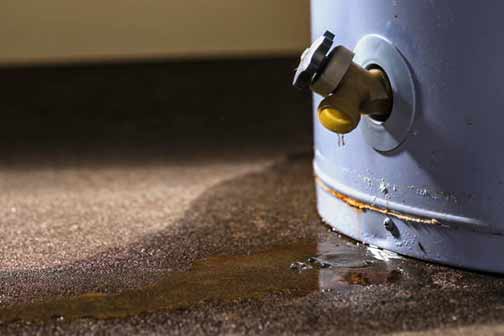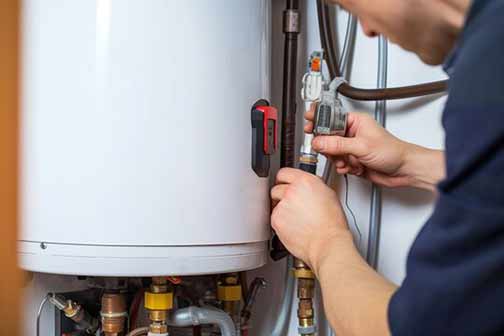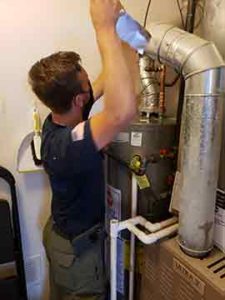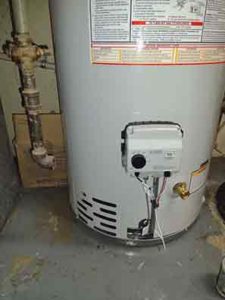Diagnosing the Problem: Understanding Common Water Heater Issues
Water heaters are essential appliances in any household, but like all mechanical systems, they can encounter issues over time. Properly diagnosing the problem is the first step towards an effective solution. Common water heater problems include no hot water, insufficient hot water, water that’s too hot, leaks, and unusual noises. Identifying these issues quickly can prevent more extensive damage and costly repairs.
No Hot Water: Addressing Lack of Hot Water Supply
One of the most common and frustrating water heater issues is not having hot water. This could be due to various reasons such as a malfunctioning thermostat, a broken heating element, or issues with the power supply. To troubleshoot:
- Check the power supply to ensure the heater is receiving power.
- Inspect the thermostat settings to ensure they are correctly adjusted.
- Examine the heating elements for signs of wear or damage.
If these steps do not resolve the issue, it might be time to contact a professional plumber to investigate further.
Insufficient Hot Water: Restoring Adequate Hot Water Levels
When your water heater doesn’t produce enough hot water, it could be due to sediment buildup, a faulty thermostat, or an undersized water heater. Consider the following solutions:
- Flush the water heater to remove sediment that may be reducing its efficiency.
- Adjust or replace the thermostat if it’s not functioning properly.
- Evaluate whether your water heater is the appropriate size for your household needs.
Water That Is Too Hot: Regulating Excessive Water Temperatures
Water that’s too hot can be dangerous and is often the result of a thermostat set too high or malfunctioning. To address this issue:
- Adjust the thermostat to a lower temperature, typically recommended to be set at 120 degrees Fahrenheit.
- Check for a malfunctioning thermostat and replace if necessary.

Leaks are a serious issue that can lead to water damage and inefficiency. Common causes of leaks include a faulty temperature and pressure relief valve, corrosion, or loose connections.
Leaks: Preventing and Fixing Water Heater Leaks
Leaks are a serious issue that can lead to water damage and inefficiency. Common causes of leaks include a faulty temperature and pressure relief valve, corrosion, or loose connections. Here’s how to fix them:
- Inspect the temperature and pressure relief valve and replace if it’s leaking.
- Check for signs of corrosion on the tank; if the tank is corroded, it might need to be replaced.
- Tighten any loose connections to prevent further leakage.
Unusual Noises: Resolving Strange Sounds from Your Water Heater
Noises such as popping, rumbling, or hissing can indicate sediment buildup, thermal expansion, or a partially closed valve. To alleviate these sounds:
- Flush the water heater to clear sediment buildup.
- Ensure all valves are fully open to allow proper water flow.
- Install an expansion tank if needed for thermal expansion issues.
Maintenance Tips: Preventing Future Water Heater Problems
Regular maintenance can prolong the life of your water heater and prevent common issues. Key maintenance steps include:
- Flushing the tank annually to eliminate sediment buildup.
- Inspecting the anode rod and replacing it if it’s heavily corroded.
- Testing the temperature and pressure relief valve to ensure it’s functioning correctly.
- Checking for any leaks or signs of wear and addressing them promptly.
When to Call a Professional: Knowing Your Limits
While many water heater issues can be resolved with a bit of DIY knowledge, some problems require professional intervention. Call a licensed plumber if:
- You identify a leak that you cannot fix yourself.
- The water heater continues to malfunction despite troubleshooting efforts.
- There is evidence of corrosion on the tank.
- You are uncertain how to safely perform maintenance tasks.
Conclusion: Ensuring Reliable Hot Water in Your Home
Dealing with water heater problems can be daunting, but with the right knowledge and actions, many issues can be resolved effectively. Properly diagnosing and addressing common problems such as no hot water, insufficient hot water, excessive hot water, leaks, and noises can keep your water heater running smoothly. Regular maintenance and knowing when to call a professional can save you time, money, and frustration or a premature water heater replacement.


